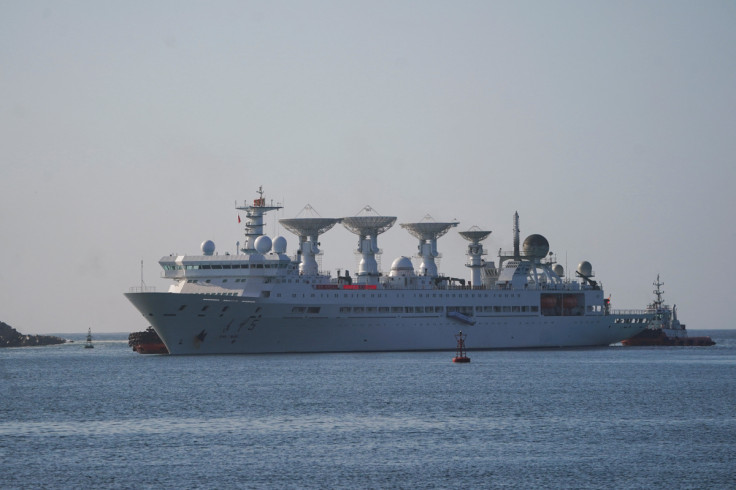Sri Lanka Lets Chinese Ship Dock At Colombo Port Despite Neighboring India's Security Concerns

KEY POINTS
- Shi Yan 6 was given authorization to dock for replenishment from Wednesday until Oct. 28 in Colombo
- Sri Lanka's foreign ministry spokesperson said the ship was not authorized to conduct research
- Chinese media previously said the vessel would be conducting research with Sri Lankan state institutions
A Chinese research ship docked at a Sri Lankan port Wednesday, as the U.S. and India raised concerns about the vessel posing potential security threats.
The Shi Yan 6 was given authorization to dock for replenishment from Wednesday until Oct. 28 in Colombo, where a Chinese state-owned company operated a deep-sea container terminal, Sri Lanka's foreign ministry spokesperson Kapila Fonseka said.
The ship was previously described by Chinese media as a "scientific research vessel" with a 60-member crew that will dock in Sri Lanka to conduct ocean surveys.
It was expected that the crew aboard Shi Yan 6 would carry out the research with Sri Lankan state institutions. However, Fonseka said the Chinese vessel was only given permission to dock for replenishment and that no research work would be conducted.
"The particular permission is very clear," he said.
Last year, India had also raised concerns about the docking of another Chinese navy vessel, Yuan Wang 5, at Hambantota in southern Sri Lanka.
India's neighbor Sri Lanka, which is located in one of the world's busiest shipping routes, has heavily borrowed from China over the past decade. New Delhi believes Chinese vessels docking in Sri Lanka may be used to spy on activities going on in India's backyard.
The U.S. and India have been suspicious about China's increasing presence in the Indian Ocean after what is seen as a series of aggressive moves, which indicate Beijing's desire to expand its economic and military footprint in the Indo-Pacific region.
"India is worried that data gathered by Shi Yan 6 can be used for military purposes, including underwater surveillance and data collection, which can be seen as a potential security threat to India's naval interests," Sampa Kundu, a consultant for ASEAN India Centre (AIC) at Research and Information System for Developing Countries (RIS), previously told International Business Times.
"Additionally, India maintains alliances and partnerships with countries like the United States, Japan, and Australia to counterbalance China's influence in the Indo-Pacific region," she added. "Therefore, when activities such as the Shi Yan 6's port call occur, it can trigger discussions and concerns among these partners, further magnifying India's apprehensions."
© Copyright IBTimes 2024. All rights reserved.





















